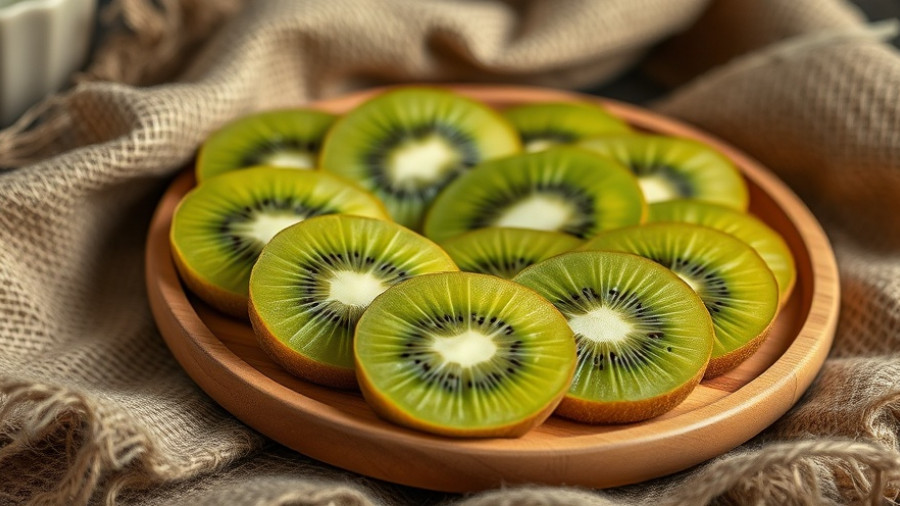
Revolutionary Foods for Constipation Relief: Beyond Fiber
If you're tired of struggling with constipation and the usual advice to simply 'increase your fiber intake' isn't cutting it, you're in luck! Recent research from King's College London offers fresh insights into dietary approaches that genuinely alleviate constipation. Forget relying solely on fiber-rich foods; it turns out that kiwifruit, rye bread, and even mineral water can provide substantial relief.
The study not only dismissed common advice about high-fiber diets but also highlighted the efficacy of certain supplements like psyllium fiber and magnesium oxide. This shift in thinking can be a game changer for those who find conventional methods ineffective or cumbersome.
Breaking Down the Research: The New Guidelines
The groundbreaking guidelines developed by the researchers represent the first comprehensive, evidence-based eating plan tailored for adults suffering from chronic constipation. The intent is clear: empower individuals and healthcare providers with effective dietary tools that are backed by solid research.
Dr. Eirini Dimidi, the leading author of this study, emphasizes that the research was thorough. It involved systematic reviews and clinical trials analyzing dietary strategies over time, ultimately yielding 59 evidence-based recommendations. The findings were published in reputable journals and have garnered endorsements from organizations like the British Dietetic Association.
A Paradigm Shift in Understanding Constipation Management
Previously relied upon strategies, such as avoiding certain food groups or consuming excess fiber, may oversimplify a complex issue. The new dietary guidelines encourage a more nuanced understanding, promoting hydration and self-management rather than pushing fiber as a catch-all solution.
This focus on a diverse range of dietary sources and minimizing the reliance on high-fiber foods marks an essential step in redefining dietary management of constipation. Instead of relying on outdated advice, individuals now have clarity on what foods genuinely contribute to digestive comfort.
The Role of Individuality in Nutrition
Another significant highlight of these guidelines is the emphasis on personalized nutrition. Conditions like chronic constipation can manifest quite differently from one person to another, and the new guidelines advocate for a tailored approach. This means that healthcare professionals can better assist their patients by focusing on specific symptoms and dietary habits, including stool frequency and consistency, which matter in providing comfort.
Popular Myths vs. Evidence-Based Reality
For years, the mainstream narrative has told us to ‘just eat more fiber’ when facing digestive issues. However, this latest research questions this broad-stroke approach and insists on a more informed understanding. By shedding light on the reality that many methods touted for constipation relief lack scientific backing, the guidelines encourage patients to seek diets that truly work.
Gone are the days when people felt pressured to eat more bran or overwhelmed by fiber supplements that may not yield the results they expected. The exciting new guidelines open the door for alternatives grounded in science.
Insights from Other Studies: A Broader Perspective
Complementing this research are findings from other institutions, such as a significant study by Mass General Brigham which showed that a Mediterranean or plant-based diet may significantly reduce the risk of chronic constipation, particularly in older adults.
This indicates a powerful link between diet composition and gastrointestinal health, suggesting that while fiber-rich diets have their place, a diverse approach that incorporates healthy fats, nuts, and a variety of fruits and vegetables may provide more comprehensive benefits.
Concluding Thoughts: Take Charge of Your Digestive Health
The landscape of dietary strategies for managing constipation has evolved, and this new evidence places the responsibility for effective management back into the hands of individuals and professionals alike.
If you or someone you know struggles with chronic constipation, consider exploring these innovative food options and engage with healthcare providers about personalizing an approach that works best. The next time someone mentions fiber, remember that a well-rounded diet that includes kiwifruit, rye, and adequate hydration might just be the key in unlocking digestive comfort.
 Add Row
Add Row  Add Element
Add Element 



Write A Comment